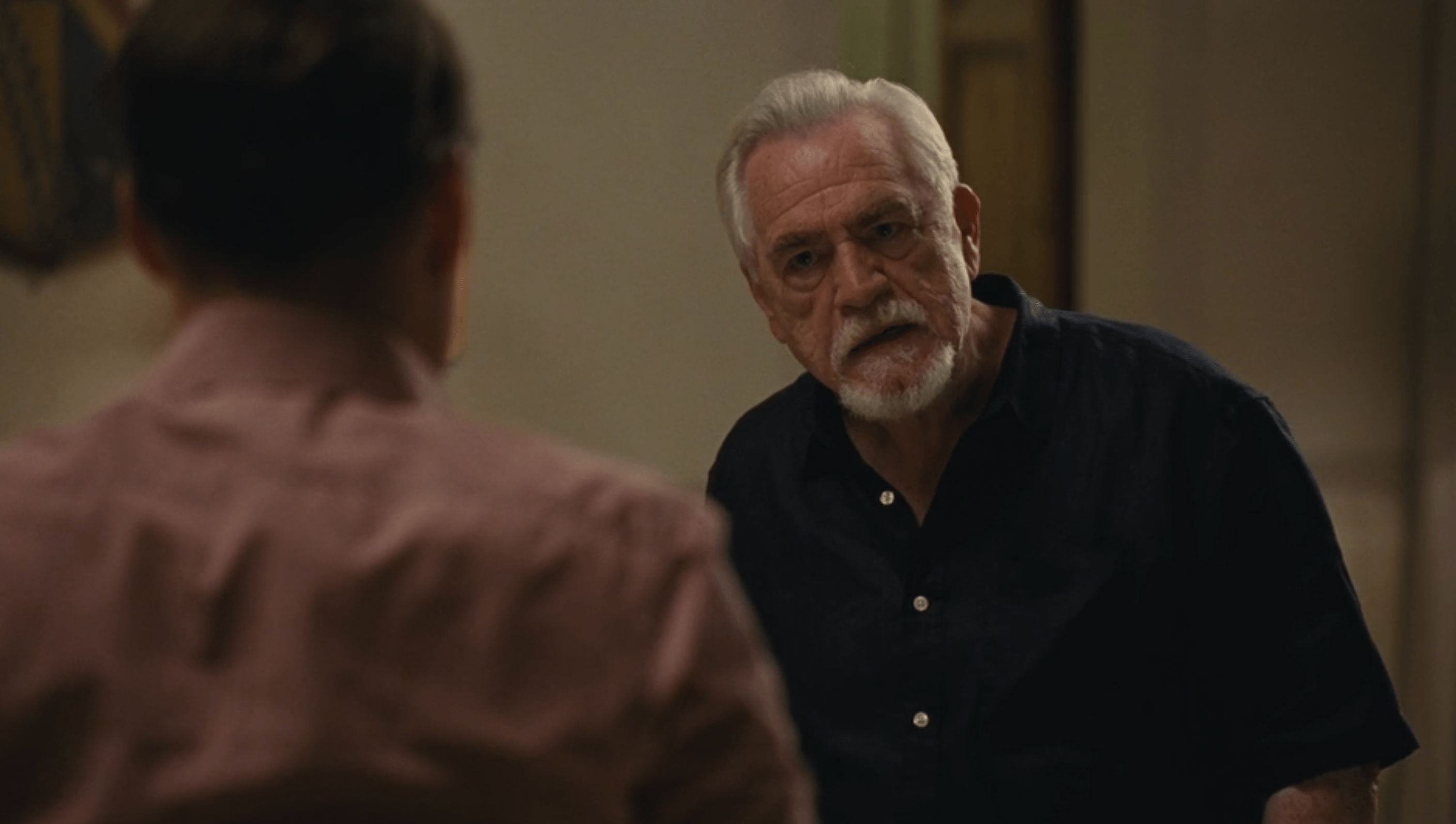The Season 3 finale of Succession ended the way that anyone who has paid more than a little bit of attention to the show should have expected it to end—with Logan Roy screaming, "Fuck off!" and "I fucking win!" while his stupid, talentless, doomed children cry in front of him.
Succession doesn't really do twists, but instead feints at them for the sake of redelivering its enduring message to viewers, like a slap on the back of the head: Nothing really changes. Nobody grows. Nobody escapes. Everything stays as awful and meaningless as it always has been. So it was no surprise when the Roy siblings' hasty and inspired coup attempt was undone in a matter of seconds by Logan. What was a bit surprising, though, was the manner in which Logan declared victory. For two seasons, the show led its audience to believe that victory for Logan meant never actually ceding control of the company and the world he had built for himself, while his thirst for that specific victory would only increase in direct proportion to his kids' desires to succeed him. And then, suddenly, in the last episode of Season 3, Logan is preparing to sell off his company to some Swedish goober he just met, ceding control of his empire, and declaring victory. What gives?
If Succession were a lesser show, Logan's sudden reversal in desires would scan as bad storytelling. If this were not a show about literal planet-destroying oligarchs, Logan telling his children that his priorities have shifted so dramatically simply because he "feels it in his bones" could be held up as evidence of the show's writers losing the plot and just throwing shit at the wall. But on this show, the fact that Logan can just change what was supposed to be his defining character trait on a whim, give up the thing that he has always been fighting to maintain, and still declare himself a winner is evidence of just how well Succession understands its characters and the world they exist in. The fact that Logan can just change the rules and conditions of the game with a snap of his fingers is the point; "winning" is and always has been whatever he chooses to define it as because that's what planet-destroying oligarchs get to do.
It's not the billions that Logan will receive for selling his company that makes him a winner. Nor is it the fact that he has taken something away from his own children. Logan is a winner simply because he exists. He lives in the sort of insulated environment in which it is impossible for him to ever truly lose. Succession is about a lot of things, and one of them is the ways in which the richest, most powerful, and most sociopathic people in America go about shaping the world that the rest of us have to live in. These people have the power that they do, in part, because they can describe and manifest the world to fit whatever vision most pleases them. At times, the show gets this point across in ways that are a little bit ham-fisted. As great as Justin Kirk's performance was in this season's sixth episode as an amalgamation of Donald Trump/Jordan Peterson/Tucker Carlson, the appearance of such real-world stand-in characters can sometimes make it feel like the show is laying things on a little too thick. Succession's attempts to grapple with and explain the world it is set in are much more affecting when those efforts unfold more subtly and through the actions of the main cast.
There's a scene in the Season 3 finale, in which Logan meets with said Swedish goober, Lukas Matsson, and the idea of Logan selling his company to Matsson first begins to take shape. It's punctuated by Logan, who emigrated from Scotland to the U.S., mourning what America has become: "America... I don't know. When I arrived there were these gentle giants smelling of fucking gold and milk. They could do anything. Now look at them. Fat as fuck, scrawny on meth or yoga. They pissed it all away. I don't know. I don't know." One way to read this moment is as another example of Logan's inherent understanding of the country where he made his fortune, successfully proliferating and profiting from America's specific set of national anxieties.
But I think there is an alternate, more meaningful way to interpret those lines, which is that they are meaningless gibberish. "Gold and milk" is a nice turn of phrase, but what Logan is expressing in that scene is not any different or more meaningful than a standard old bastard's lament about the good old days. A successful captain of industry like Logan would be the first person to understand that there were never any "gentle giants" shaping this country. He is not an oracle delivering fresh insights in that scene, but a doddering old man struggling to come up with something smart to say while under the scrutinizing gaze of a much younger and smarter business titan. Logan's an old, dying man running an old, dying business. When confronted by the man aiming to take his empire away, all he can respond with is a meaningless platitude about how things used to be. Logan's speech ends with a strained silence and then him asking Matsson to carry things forward. "Go on, talk to me," he says. Logan's run out of things to say.
And yet, this old coot, this dinosaur who appears on the cusp of relinquishing everything he was supposed to have been so fearsome in protecting—his company, his position in the world, his relevance, his fighting spirit—still gets to end his day in triumph, roaring and thundering about what a winner he is, for no other reason than he believes himself to be one. You'd be hard pressed to find a cleaner expression of Succession's ideas about America.





